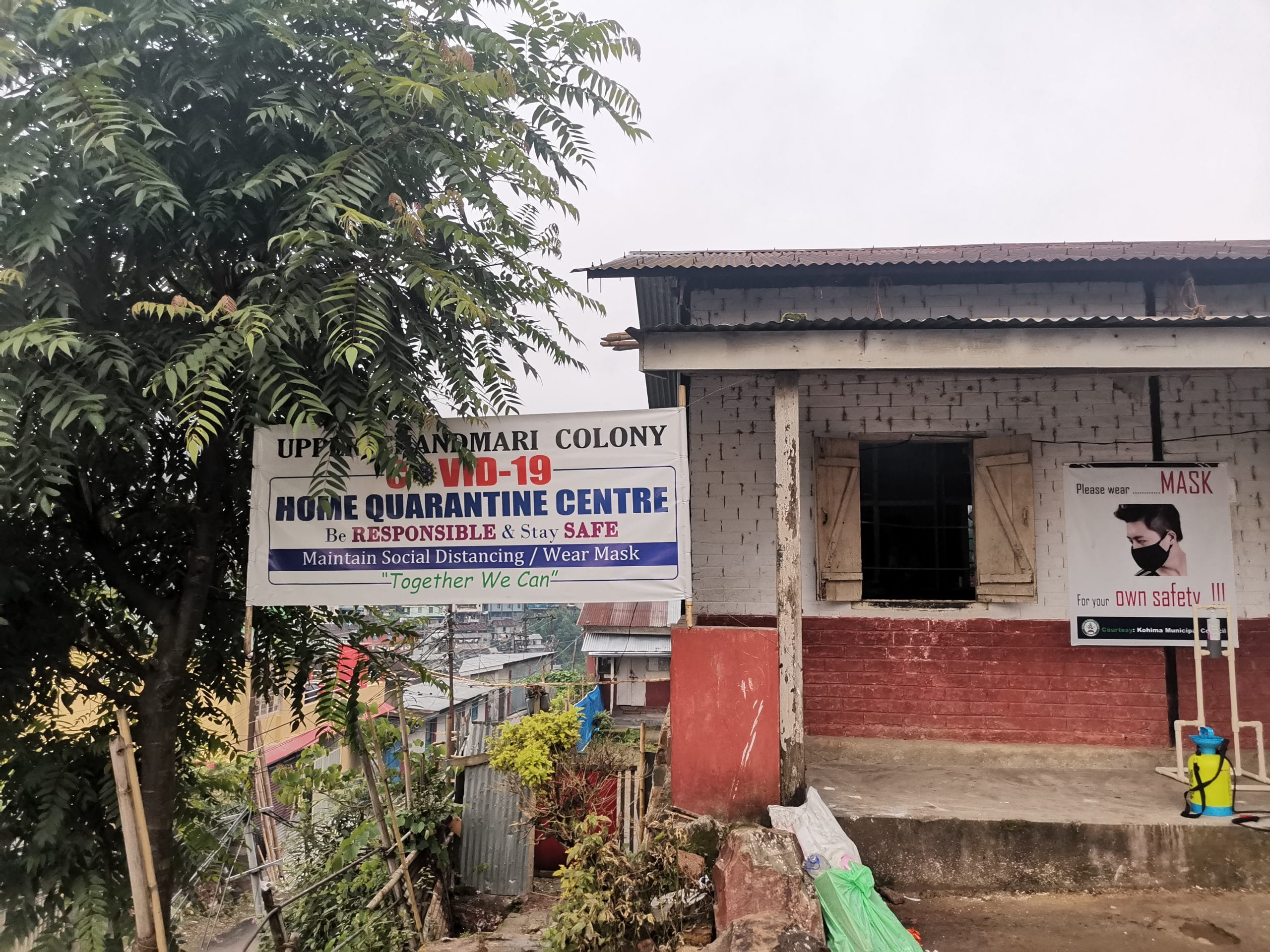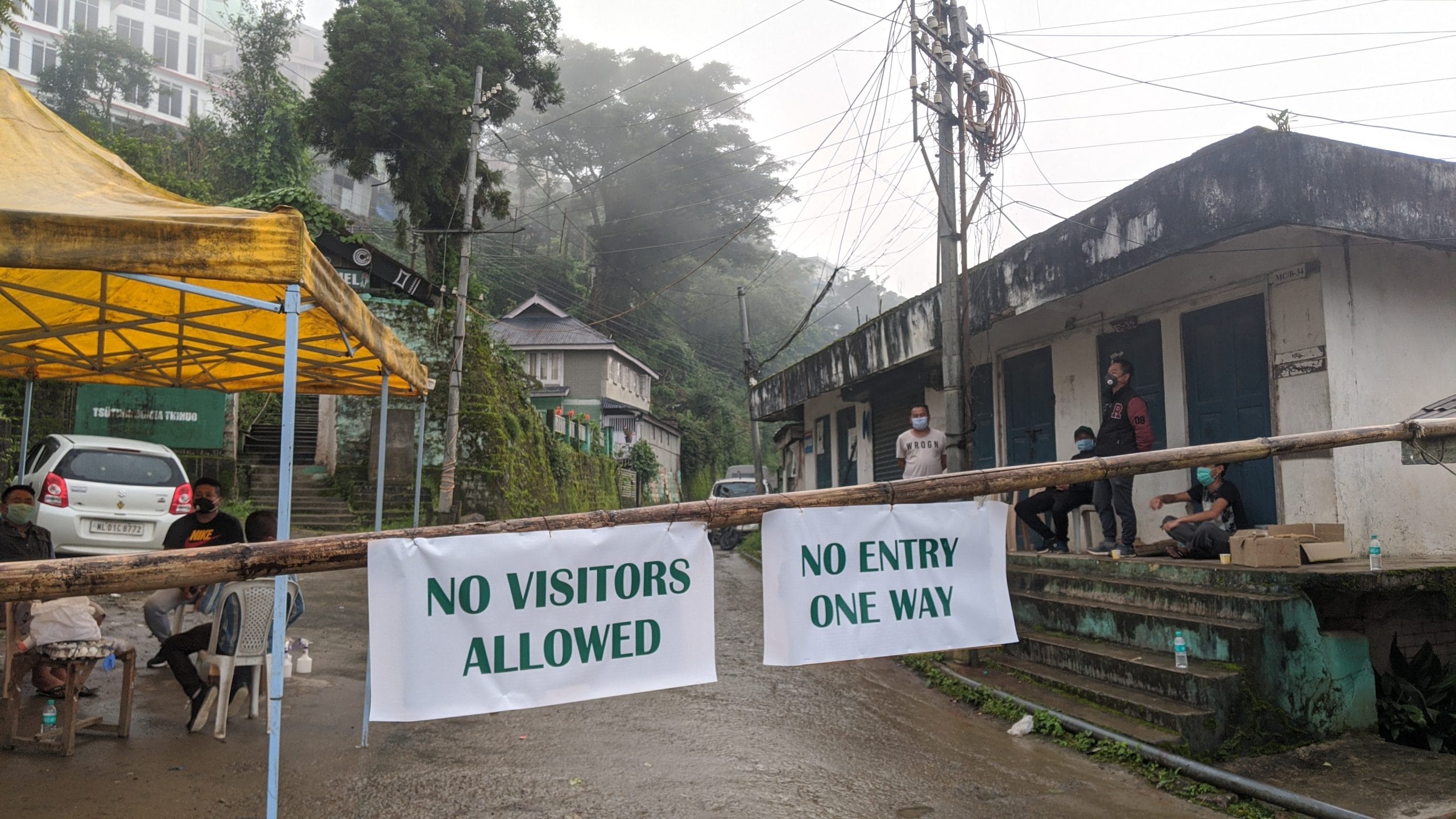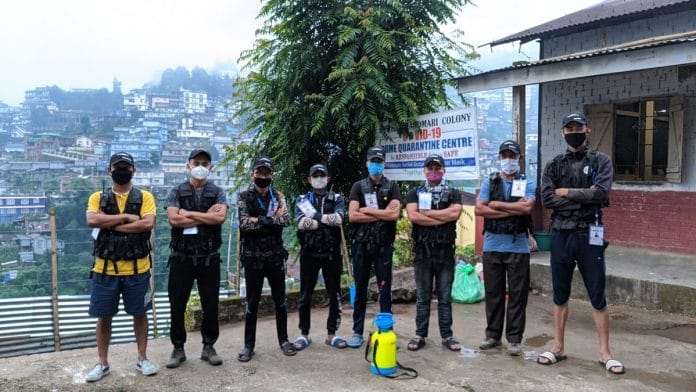Kohima: For 34-year-old Samdarshi Kumar, a Nagaland Police personnel who returned from leave, the journey back to Kohima from his home in Uttar Pradesh’s Ballia district has been painstakingly long.
After spending 16 days in institutional quarantine, Kumar returned to his colony in Kohima’s Upper Chandmari colony. Here, the Covid-19 task force constituted by the ward chairman whisked him off to a community centre where he is undergoing 14 days of ‘home quarantine’.
“It’s good that the colony is keeping us separately. Even if we were at home, we wouldn’t be that separate — and it’s closer to the other people in the colony. This is why we are spending the home quarantine period in the government school here,” Kumar said.
His is not a one-off case in the state. Local communities across Nagaland and other states in the Northeast have constituted their own task forces, issued own set of standard operating procedures and set up own quarantine centres for all returnees.
“As days go by, they (the communities) have come to know what Covid is. And they’re giving awareness to the colony people. It has been of great help. Sometimes there is incongruence between our policies and theirs, but they are definitely helping,” Kohima Chief Medical Officer Dr Vezokholu Theyo said.
Nagaland has received over 12,000 returnees as of 12 July, according to the state government’s data. Despite this, the state has recorded 1,174 cases as of Friday.
Also read: Security forces returning from leave bring Covid surge in Nagaland, rest of NE echoes pattern
Communities arrange wherewithal
In Kohima, such community quarantine centres have been set up in 10 of the city’s 19 wards. They are solely being run and maintained by the communities themselves with little help from the government, according to Kohima Municipal Council Chairman Kovi Meyase.
“It is the community, which has arranged the wherewithal for these facilities, whether it be in cash or kind,” he told ThePrint.
Among the 10 is the Upper Chandmari colony, which has received 13 returnees since June, a few days after the ward chairman Ketholilie Keditsu constituted the Covid-19 Action Committee Cum Task Force.
The 13-member team, mainly comprising youth volunteers of the area, has been tasked with registering the returnees and maintaining the community quarantine centres.

“All the returnees who come here from the government quarantine facilities are received by our youths and the Covid-19 action committee. And we keep all of the returnees in our community quarantine facility, which we have set up here. The colony youths and elders even prepare food for all of them,” Keditsu said.
At the community quarantine centre, four members of the task force were hard at work preparing dinner for the returnees. The centre, which was set up at the government school, is currently housing five returnees including Samdarshi Kumar.
Black vests, similar to ones worn by armed forces, were hanging on a clothesline. One of the members explained that members wear the vests and carry walkie-talkies while dispensing their duties.
“We started with two inmates, and we kept them for 14 days and then released. The second batch was of five inmates, who we recently released after they completed their mandatory quarantine period. So, altogether we have released seven so far, and we currently have five inmates,” said Thejasezo Mor, secretary of the task force.
“We don’t follow any rota as such because it’s a community-based facility, so whoever is free will come and work in the kitchen and do other chores as well,” he added.
Also read: How Nagaland Police built Dimapur’s Covid quarantine centre that can host more than 1,000
The vigilante groups
In Kohima village, also known as Bara Basti, located in the north-eastern part of the urban area, the village council has also set up a similar facility.
Dr Neiphi Kire, the village council chairman and former principal director of the state’s health and family welfare department, said the facility has played a significant role in controlling the spread of Covid.

“Because now, although the returnees are kept in the government facility for 14 days, there is a possibility that they don’t have proper toilets. So to avoid that and to ensure that this does not spread to any other members of the family (we are keeping them in),” he said.
So far, 43 returnees have been released from the centre in Kohima village.
Meanwhile, in Dimapur, which borders Assam and has the only airport and railway station in the state, such a system has helped the administration keep an account of all the returnees.
“There are so many who are entering Dimapur through the porous border, which goes unnoticed by the administration as well as the police. This vigilante group in their own locality catch and bring them to us,” said Dimapur Chief Medical Officer Dr Tiasunep Pongener.
But these communities have also posed a hindrance, especially in cases involving special category returnees including cancer patients, according to him.
“From a medical point of view, we have to send them for home quarantine because they’re on chemotherapy but the community is not willing to take them — so we have to keep them in our institutional quarantine. And there have been cases, wherein, even if they reluctantly take in these patients, their relatives aren’t allowed to go out,” he said.
The case in NE
Local communities across the Northeast region have been at the forefront of the Covid battle. A state like Meghalaya had until last month reported just three cases.
“When the entire Covid (situation) broke out, we thought of talking to the community and asking them to participate in this so that all of them can learn from this crisis. So, community Covid management teams were formed. They also included government representatives but are predominantly managed by the communities,” Ram Kumar, Joint Secretary of Health and Family Welfare and National Health Mission Director, Meghalaya, told ThePrint over the phone.
Over 7,000 such committees have been set up in the 6,000 villages and three urban areas of Meghalaya, including Shillong. “They monitor those in home quarantine. They take care of the people in the community quarantine centres. So through this, we could prevent a lot of spread,” said Kumar.
Meanwhile, in the states of Manipur and Mizoram, local traditions have helped with social distancing protocols. Shops here are functioning solely on trust as the customers can deposit their money in boxes or jars when picking up any item.
Samdarshi Kumar, who’s in Kohima, said, “My office knows that I’ve come back and am being kept in quarantine. But they want me to come back only once I get done with the quarantine”.
Also read: Stopping traffic, discipline, ‘braking’ Covid spread — why states are bringing back lockdowns







Great initiatives, and a worthy template of protocols for communities in other states to follow…..